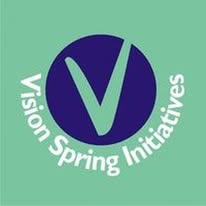The introduction of the “Counter Subversion Bill, 2024,” by Hon. Abass Tajudeen has raised deep concerns among civil society organizations (CSOs) in Nigeria, particularly among organizations committed to promoting human rights, gender equality, and social justice. This bill poses a significant threat to the already shrinking civic space in Nigeria, with potentially devastating consequences for civil society organizations (CSOs), feminist groups, and the broader community of women and girls.
Understanding the Counter Subversion Bill: What’s at Stake?
The Counter Subversion Bill aims to criminalize activities deemed subversive by the government. However, the bill’s language is alarmingly vague, making it difficult to clearly define what constitutes subversion. The bill describes subversion as actions that create “mutual suspicion, mistrust, distrust, or intolerance” that could lead to conflict or violence. This sweeping definition grants law enforcement agencies excessive discretion in interpreting what actions or statements are considered subversive, thus placing CSOs—especially those advocating for women’s rights and gender equality—at heightened risk.
Key provisions of the bill include:
- Prohibition of Unauthorized Processions and Demonstrations: The bill could criminalize public gatherings, marches, and protests that are not pre-approved by the authorities.
- Mandatory Registration of Volunteer Service Groups: All volunteer-based organizations would be required to register with the government, potentially delaying or obstructing their work.
- Penalties for Dangerous or Inflammatory Public Statements: The bill includes severe penalties for public statements deemed to incite danger or conflict.
- Restrictions on Associations and Foreign Funding: The bill restricts associations with organizations deemed subversive and limits the foreign funding of NGOs.
The ambiguity of these provisions leaves CSOs vulnerable to arbitrary enforcement, undermining their ability to function effectively and advocate for societal change.

Photo Credit: The Wall Street Journal
Implications for CSOs and Gender Advocacy
For CSOs in Nigeria, particularly those focused on gender justice, the Counter Subversion Bill represents a significant challenge. These organizations play a vital role in advocating for the rights of women and girls, challenging discriminatory practices, and holding the government accountable. The bill’s restrictions could limit their ability to operate freely and effectively.
Impact on Advocacy and Mobilization: The bill could make it more difficult for CSOs to organize public protests and campaigns, which are essential for raising awareness and driving change. The recent 10-day protest from August 1 to 10, 2024, which saw widespread participation across Nigeria, highlighted the power of collective action. However, the response from law enforcement, including the use of teargas and other repressive measures, underscored the risks involved. The bill could further legitimize such crackdowns, discouraging public demonstrations and silencing dissenting voices.
Challenges to Organizational Functioning: The requirement for mandatory registration of volunteer organizations could introduce new bureaucratic challenges, potentially delaying or obstructing the work of CSOs. This could be particularly detrimental to organizations that rely on volunteer networks for rapid response and grassroots mobilization.
Silencing of Critical Voices: The bill’s provisions on public statements could be used to target CSOs that speak out against government policies or advocate for systemic change. While intended to prevent incitement, these provisions could also be interpreted in ways that suppress legitimate criticism and debate, undermining the ability of CSOs to hold the government accountable.
The Recent 10-Day Protest: A Case Study in Repression
The 10-day protest against bad governance from August 1 to 10, 2024, serves as a stark reminder of the critical role that civic space plays in holding the government accountable. This protest, which saw thousands of Nigerians, including many women and youth, take to the streets, was a direct response to widespread dissatisfaction with government actions, including corruption, economic mismanagement, and human rights abuses.
However, the brutal response from law enforcement agencies, including the use of teargas and arrests, underscored the dangers that activists and ordinary citizens face when exercising their right to peaceful assembly. For CSOs, particularly those focused on feminist and gender justice work, the risks are even greater under the new bill. The vague language of the Counter Subversion Bill could be used to justify further repression, making it even more difficult for organizations to speak out, protest, and demand change.
A Call to Action for CSOs
As Vision Spring Initiatives, we express our deep concern over the potential impact of the Counter Subversion Bill on civic space in Nigeria. This bill, with its vague and ambiguous language, poses a grave threat to civic space in Nigeria, particularly for organizations working to advance the rights of women and girls. If enacted, it would undermine the efforts of CSOs to advocate for justice, equality, and accountability, while also threatening the rights of all Nigerians to participate in public life. It is essential that we safeguard the freedoms that allow civil society to operate, ensuring that organizations can continue to advocate for justice, equality, and human rights.
We call on all CSOs, feminist organizations, and concerned citizens to unite in opposition to this bill. Protecting civic space is not just about defending the rights of organizations—it’s about protecting the rights of all Nigerians to participate in public life and hold their government accountable. Now, more than ever, it is crucial to protect the hard-won freedoms that allow us to advocate for a more just and equal society.
